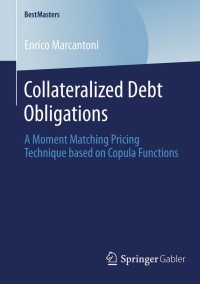Question
Articles, books and reports Alstyne, Marshall Van/ Brynjolfsson, Erik [1995] Communication Networks and the Rise of an Information Elite Do Computers Help the Rich Get
Articles, books and reports
Alstyne, Marshall Van/ Brynjolfsson, Erik [1995] Communication Networks and the Rise of an Information Elite Do Computers Help the Rich Get Richer? In: Proceedings of the International Conference on Information Systems. Amsterdam; December 14-17, 1995. Circumstances exist under which a telecommunications policy of universal access leads to an increase in the gap between the information haves and the have-nots. A national information infrastructure which provides only channels and not incentives for information sharing might therefore lead to results which are reversed from those originally intended. This argument and several related propositions are explored through a formal theoretical model built on four simple assumptions: one cannot converse with everyone at the same time, information is not lost when shared, private information resources differ in quality, and agents can improve the quality of their information based on the quality of the resources to which they gain access. The model rigorously explains how inter-agent infrastructure can be used to help the rich get richer and also why its not just what you know but whom you know. This theoretical framework serves to explain several stylized events and offers several useful levers for exploring policy options.
American Prospect, The
[Fall 1992] The Rich, the Right, and the Facts: Deconstructing the Income Distribution Debate - Paul Krugman Incomes have soared at the top of the U.S. income distribution. Most of the growth in productivity was siphoned off to high-income brackets, leaving little room for income growth lower down. Most economists thought that growing poverty might be an important social issue, but the fact that some people are very rich was only a social curiosity. Krugman disagrees: the rise in incomes at the top is in fact a major economic issue. His shorthand way of conveying that point is the Krugman calculation: 70 percent of the rise in average family income has gone to the top 1 percent of families.
[10.12.2001] The Inequality Express - Barry Bleustone In the social sciences a number of possible explanations are suggested for the trend toward greater inequality. The author tries to sort them out.
[19.12.2001] Inequality and Social Security - Richard Leone
[17.05.2004] Solve Inequality with Democracy - Miles Rapoport
[22.04.2007] Inequality, Race, and Remedy - Alan Jenkins
[14.11.2012] Want Less Inequality? Tax It - Liam C. Malloy / John Case An attempt to revive the idea of Arthur C. Pigou en to apply it to Americas most outrageous problem: inequality.
[12.03.2014] The Inequality Puzzle - Robert Kuttner There had been no decline in intergenerational mobility during the past three decades. the ability of the affluent to pass along class advantage has intensified in countless ways. Young people from wealthy families are more likely to get into elite colleges and less likely to finish college hobbled with debt. Parents can subsidize unpaid internships useful for networking. The children of the affluent can get help with starter homes, in districts with excellent public schools. The wider the income extremes, the more money the elite has to spend assuring that their progeny stay in the family social class. The worse life becomes for ordinary people, the more incentive the rich have to extend privilege to their kids.
[14.08.2014] Education Alone Is Not the Answer to Income Inequality and Slow Recovery - Robert Kuttner
[Spring 2015] The Political Roots of Widening Inequality - Robert Reich The key to understanding the rise in inequality isnt technology or globalization. Its the power of the moneyed interests to shape the underlying rules of the market.
[28.09.2015] The Pope's Blind Spot: When Income Inequality and Abortion Intersect - Atima Omara Omara explains why reproductive healt is a social justice issue. Poor women have significantly higher rates of unintended pregnancy, which in turn lead to higher rates of abortion and unintended birth. Using effective contraception consistently is an expensive proposition that goes far beyond paying for the pills or condoms themselves. To access the most effective methods, a woman must be able to get to a clinic, see a provider, get a prescription and/or make it to follow-up visits. For a woman without insurance, without a car, who cant get time off work, or who maybe doesnt speak the same language as her doctor, the seemingly simple act of getting and staying on birth control is anything but.
[Spring 2015] Senior Class: America's Unequal Retirement - Teresa Ghilarducci One of the cruelest manifestations of widening inequality happens in lifes final quarter. The inequality of retirements time is the number of years between retirement and death. The poor have lower earnings and often work longer. They are less likely to have decent pensions or private savings. On average, they suffer poorer health and tend to die younger. On all counts, the affluent get to enjoy more years of retirement in relative comfort.
1. How do the functional and conflict perspectives approach the factors likely to contribute to intergroup conflict?
Step by Step Solution
There are 3 Steps involved in it
Step: 1

Get Instant Access to Expert-Tailored Solutions
See step-by-step solutions with expert insights and AI powered tools for academic success
Step: 2

Step: 3

Ace Your Homework with AI
Get the answers you need in no time with our AI-driven, step-by-step assistance
Get Started


